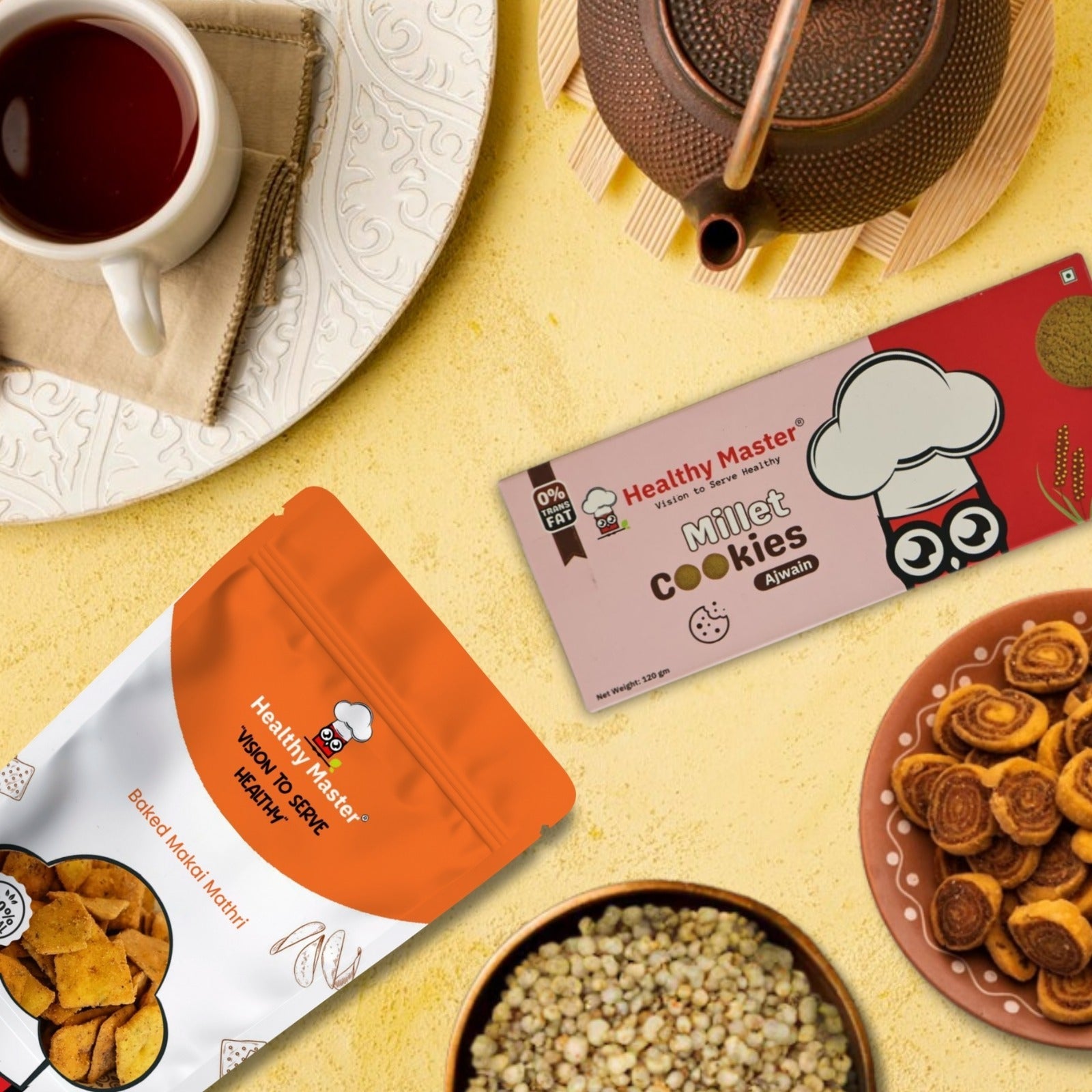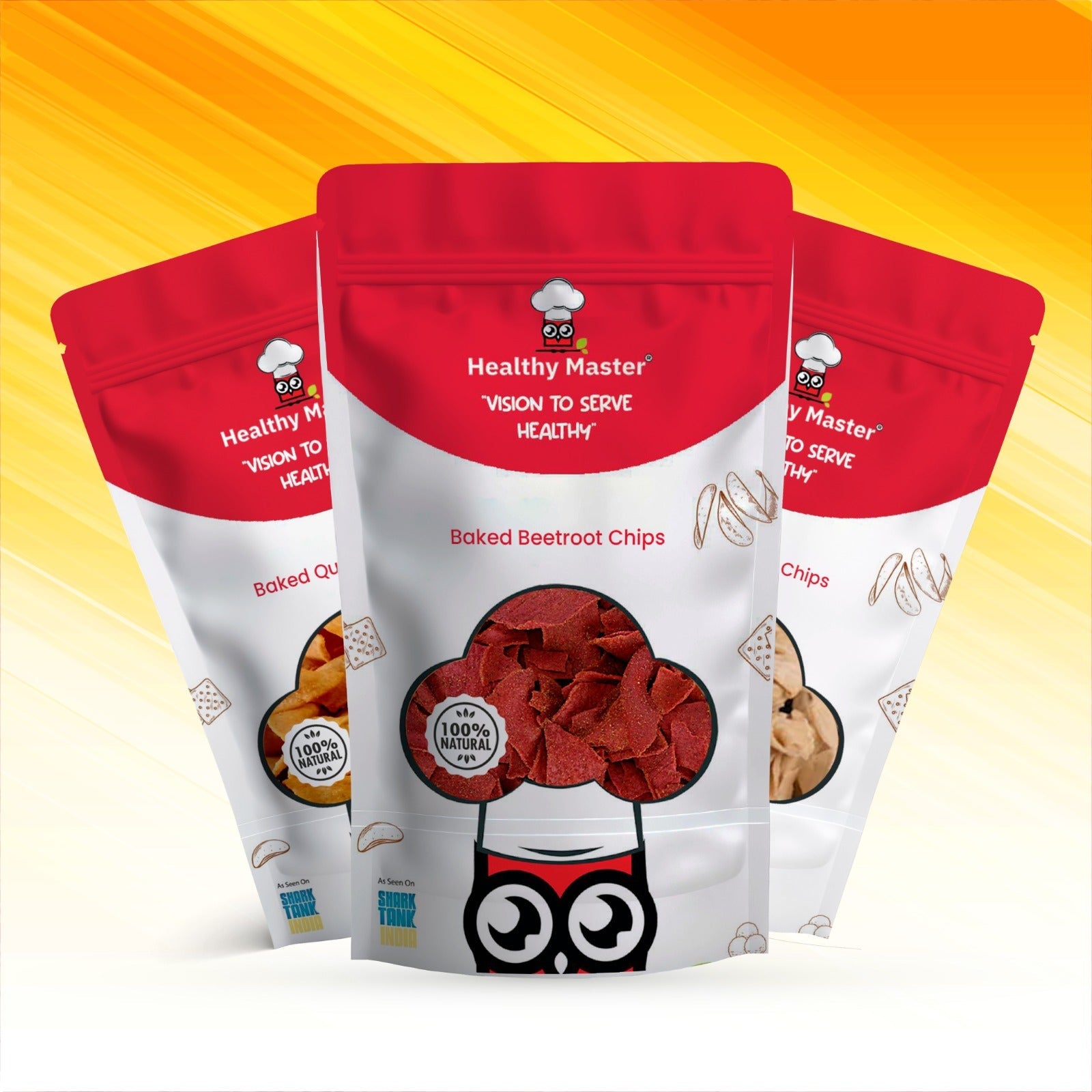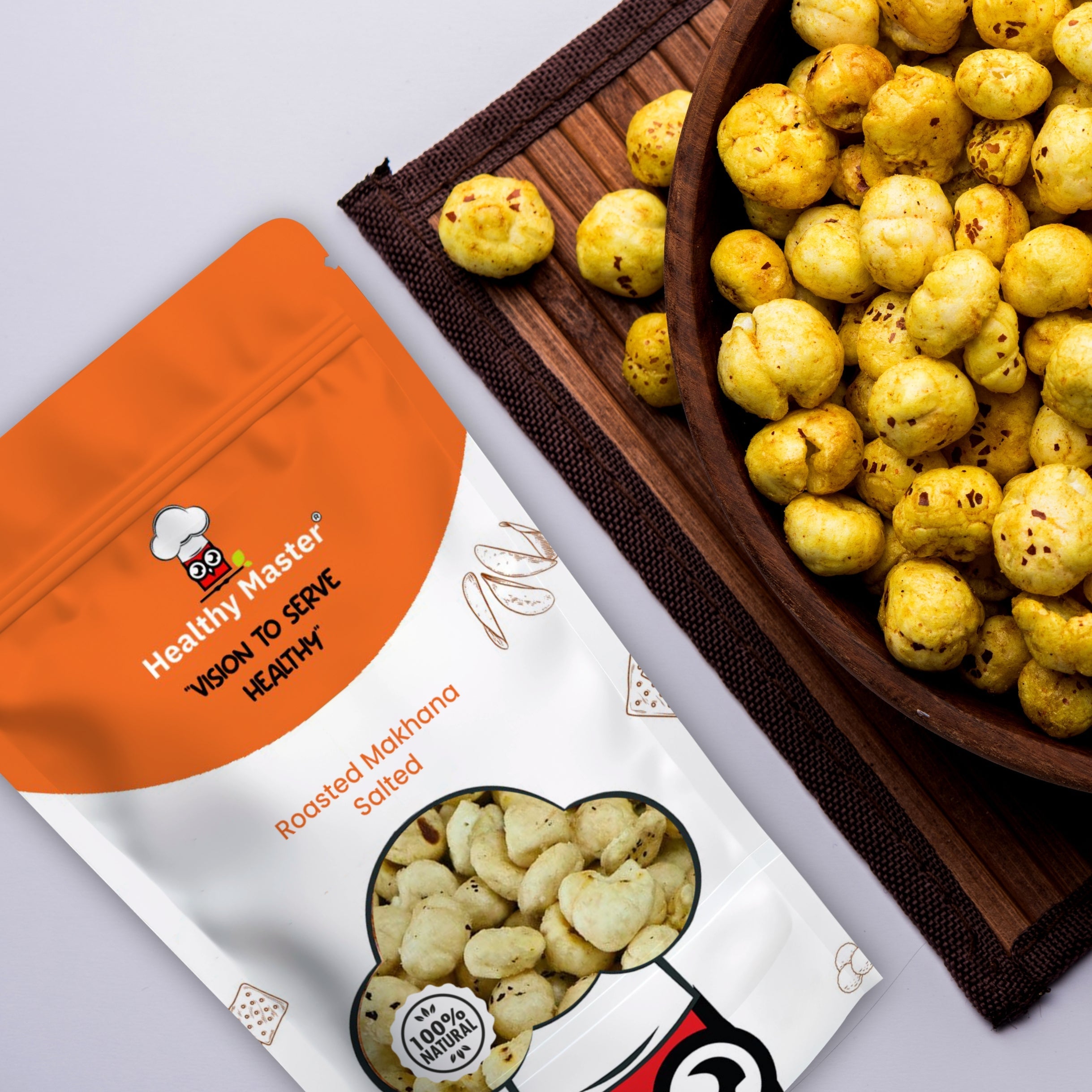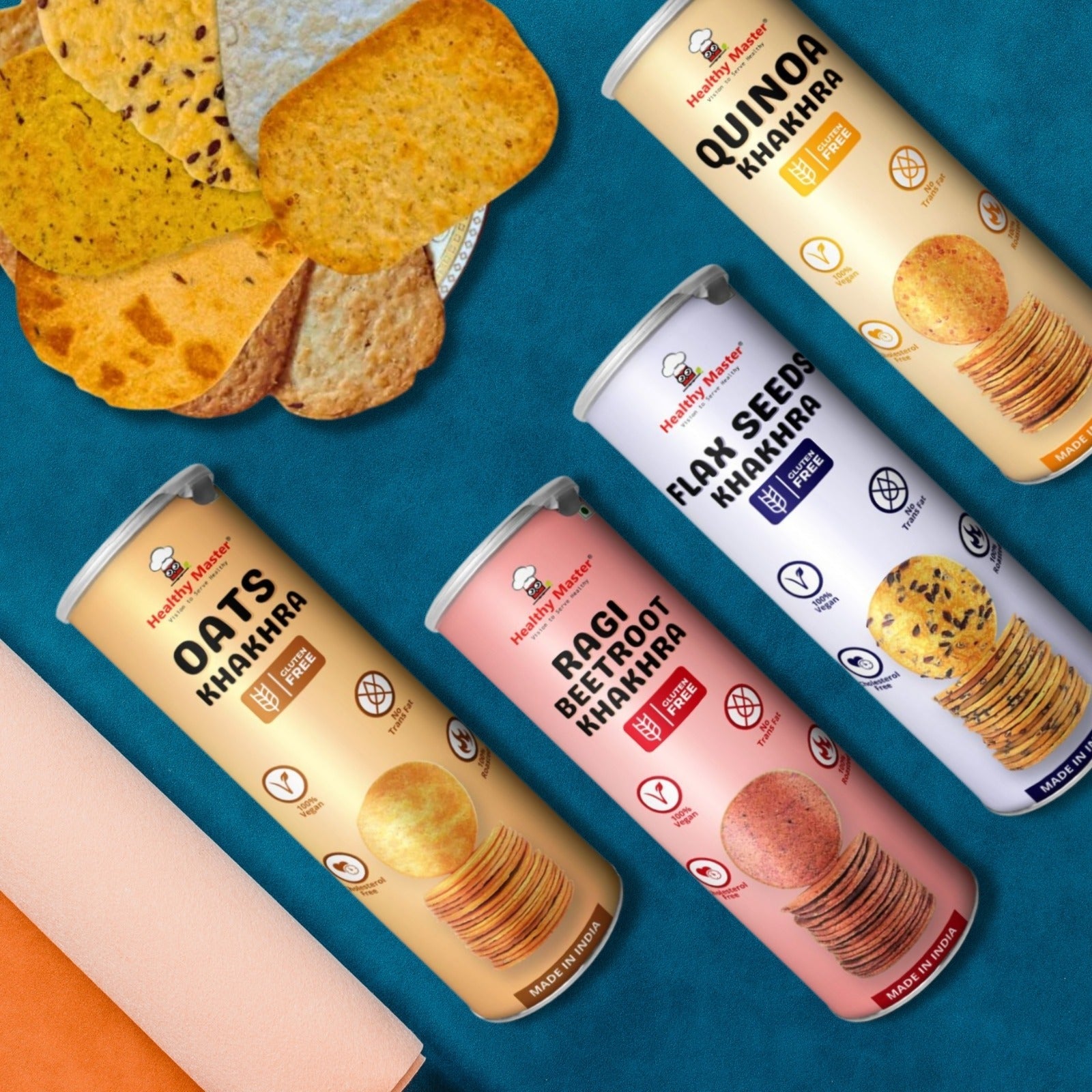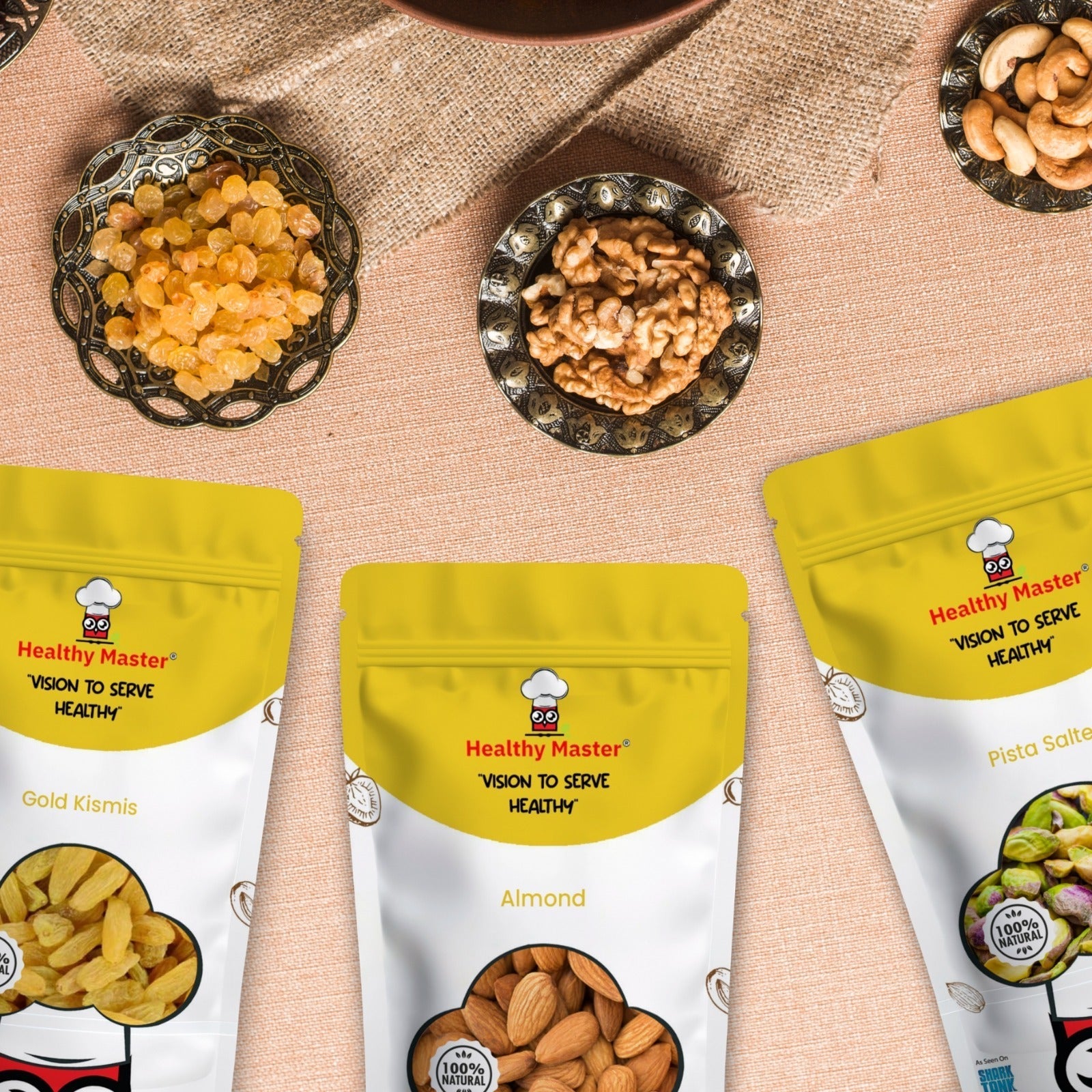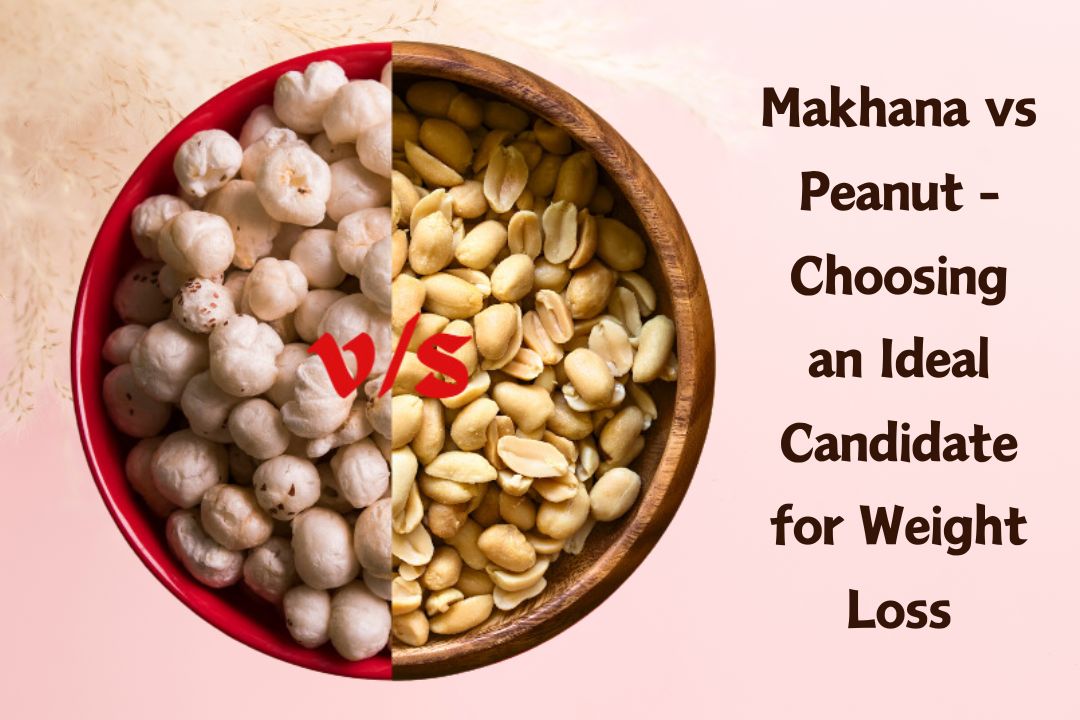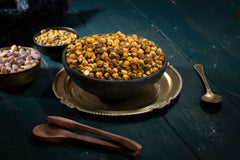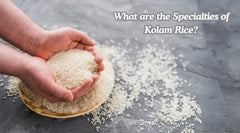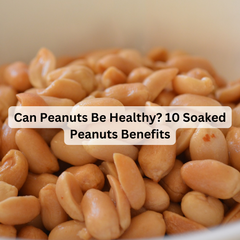Peanuts and makhana may aid you in your weight loss journey. Peanuts offer fats and proteins, whereas makhana enriches your body with potassium, iron, calcium, and kaempferol. All you have to do is to know which suits you best and include them in your diet. You can mix and match them with different dishes and enjoy a filling snack option. This is also a great way to control your daily calorie intake and meet the necessary nutrient requirements of your body.
Understanding the Nutritional Profile
In order to make an informed decision, it is very important for you to understand the nutritional profile of the snack you choose. Below mentioned are the nutritional profiles of both makhana and peanuts:
Makhana: Makhana, also known as lotus seeds or fox nuts is a traditional snack consumed for centuries in and around India. They are often roasted and slightly seasoned which gives them a crunchy and tasty texture.
The nutritional profile of makhana per 100 gms:
Calories: 347 approx
Protein: 9.7 gms
Fat: 0.1 gms
Carbohydrates: 76.9 gms
Fiber: 14.5 gms
Makhana is low in fat and calories when compared to most of the other snacks available in the market. Therefore, it makes it a perfect candidate for people who are looking for an option to snack healthy and lose weight. On the other hand, the high fiber content of makhana also keeps you full for longer periods while reducing the urge to overeat.
Peanuts: Peanuts are considered to be a healthy legume that is packed with proteins and healthy fat. They are often consumed roasted, steamed, salted, or in the form of peanut butter. Unlike makhana, peanuts are high in calories and fat. However, as they are also a great source of protein, which is important for muscle maintenance and growth, they can also aid you in weight loss while toning the body.
The nutritional profile of peanuts per 100 gms:
Calories: 567 approx
Protein: 25.8 gms
Fat: 49.2
Carbohydrates: 16.1 gms
Fiber: 8.5 gms
Makhana for Weight Loss
Makhana is a rich source of potassium, iron, calcium, protein as well as magnesium, which plays an important role in weight loss and gaining muscle mass. On the other hand, they also contain a flavonoid called kaempferol, which is known to have anti-aging and anti-inflammatory properties. They also keep you fuller in between meals and reduce your cravings. Makhanas can also reduce the risk of heart problems, infertility issues, insomnia, and diabetes.
Peanuts for Weight Loss
On the other hand, peanuts are cheaper and rich in high-quality fats and proteins. They take a longer time to digest and also keep your blood sugar levels stable. According to experts, snacking on peanuts in moderation is a great way to control hunger without weight gain. These mighty nuts can even boost your metabolic rate, prevent constipation, as well as reduce the risk of developing chronic heart diseases.
Which one makes a Healthier Weight Loss Snack?
According to the experts, both of these snacks have more or less the same nutrient values, prevent you from overeating, and promote satiety. They both are great for healthy chaat, and salads and can be used in shakes or smoothies to make a filling snack or drink. When it comes to the nutritional values of both items, the major difference you can find is in the calorie content. Makhanas are low in calories, whereas peanuts are calorie-dense. Thus, if you are looking for an option to curb your calorie intake, then makhana can be a safer choice. Some health experts and dietitians also suggest a mix of both these nuts to obtain good results in your weight loss journey.
Health Benefits
Makhana: Makhana is low in calories, which makes it an excellent option for weight watchers. They are also high in fiber, which aids in digestion and helps in maintaining a healthy digestive system. The rich antioxidant properties of makhana help you fight free radicals in the body and reduce oxidative stress. They also have a low glycemic index which means they release glucose very slowly into the bloodstream, which helps diabetic patients maintain steady blood sugar levels.
Peanuts: Peanuts are an excellent source of protein, which helps your body to build and repair tissues. They contain monounsaturated fats and polyunsaturated fats that are beneficial to maintain a healthy heart. Peanuts are also rich in vitamins E, B6, folate, niacin, and magnesium. They also contain resveratrol, an antioxidant that has anti-aging and disease-fighting properties.
Weight Loss Potential
Makhana: As mentioned above, makhana is a great snack for weight loss as they are very low in calories and high in fiber. The fiber content in makhana helps you feel full, which prevents you from overeating. Additionally, the low glycemic index value will not cause any type of rapid spikes in blood sugar levels, which makes it a very suitable snack for managing blood sugar. Makhana is also low in fat, which further contributes to its sustainability as a weight-loss snack that you can enjoy any time of the day. It has a crunchy texture, which gives it the versatility to blend in with any type of seasoning.
Peanuts: Peanuts, although rich in calories and fat, can still be a good addition to your weight loss diet. For instance, the protein and healthy fats in peanuts can promote satiety and reduce the overall amount of food you consume. Protein, which is present in peanuts has a high thermic effect, which means it takes more energy for the body to digest and help in weight loss.
Conclusion
Ultimately, the best snack for weight loss is the one that fits into your lifestyle and overall diet, while providing the nutrients required for your body. It does not matter whether you choose makhana or peanuts or even a combination of both, balance and moderation are the key. It is also important for you to choose the right quality snacks.
If you are in search of premium quality makhana and peanuts, you can find some of the best snack variations provided by Healthy Master. There are many varieties, flavours, and textures to choose from. You will also find plain makhana and peanuts that you can choose to incorporate in other dishes. So, why wait? Choose Healthy Master and enjoy a flavorsome weight loss journey.
FAQs
1. Which is better for weight loss, makhana or peanuts?
Makhana is generally better for weight loss due to its lower calorie and fat content compared to peanuts. Makhana is also high in fiber, which helps you feel full and satisfied for longer periods, reducing the likelihood of overeating. However, peanuts can also aid in weight loss by providing healthy fats and proteins to the body.
2. Can I include both makhana and peanuts in my weight-loss diet?
Yes, you can incorporate both makhana and peanuts in your weight loss diet. The key is to consume them in moderation. Makhana can be a great low-calorie, high-fiber snack, while peanuts provide protein and healthy fats. Balancing both can help you get a variety of nutrients.
3. How do the nutritional profiles of makhana and peanuts compare?
Makhana is lower in calories and fat, with approximately 347 calories and 0.1 grams of fat per 100 grams. It is also high in fiber (14.5 grams per 100 grams). Peanuts are higher in calories (567 calories per 100 grams) and fat (49.2 grams per 100 grams) but are also rich in protein (25.8 grams per 100 grams) and contain healthy fats.
4. What are the potential drawbacks of eating peanuts for weight loss?
The main drawback of eating peanuts for weight loss is their high calorie and fat content, which can lead to overconsumption if not monitored. Additionally, peanuts can cause allergic reactions in some individuals. It's essential to consume peanuts in controlled portions to avoid excess calorie intake.
5. Are there any specific benefits of makhana for weight loss?
Yes, makhana has several benefits for weight loss. It is low in calories and fat, making it a suitable snack for calorie-conscious individuals. Its high fiber content helps in promoting satiety and improving digestion. Additionally, makhana has a low glycemic index, which means it releases glucose slowly into the bloodstream, aiding in better blood sugar control and reducing hunger pangs.
 Deal of the week : Trial Snack Box - 18 Wholesome Delights Just at ₹ 899.00
Deal of the week : Trial Snack Box - 18 Wholesome Delights Just at ₹ 899.00


